
Value Added Tax on Petroleum Products in UAE
Value Added Tax (VAT) on petroleum products is a consumption tax applied at each stage of the supply chain, impacting fuel prices in countries like the UAE, Kenya, and India. Compliance with VAT regulations ensures businesses manage input and output taxes effectively, influencing costs for consumers and government revenue.
Table of Contents
Related Articles


Sugar Tax Reform Will Crush Small UAE Drink Brands

The Impact of CARF on UAE Crypto Traders | Ready to Report FTA

Let's Talk
Sign Up For Free Consultation
Value Added Tax on Petroleum Products
Value Added Tax (VAT) on petroleum products is a critical factor influencing fuel prices, business operations, and economic policies worldwide, particularly in the UAE, a global hub for oil and gas. Whether you’re a consumer frustrated by rising pump prices or a business navigating UAE tax compliance, understanding VAT on petroleum products is essential. In this comprehensive guide, we’ll explore how VAT affects petroleum prices, global and UAE-specific rates, exemptions, and how Tulpar Global Taxation, a leading UAE tax consultancy, can help businesses ensure compliance and optimize tax strategies.
With the UAE’s evolving tax landscape, including the introduction of VAT in 2017, businesses in the petroleum sector face unique challenges. Tulpar Global Taxation, accredited by the UAE Federal Tax Authority (FTA), offers expert guidance to simplify VAT compliance, minimize penalties, and enhance financial efficiency.
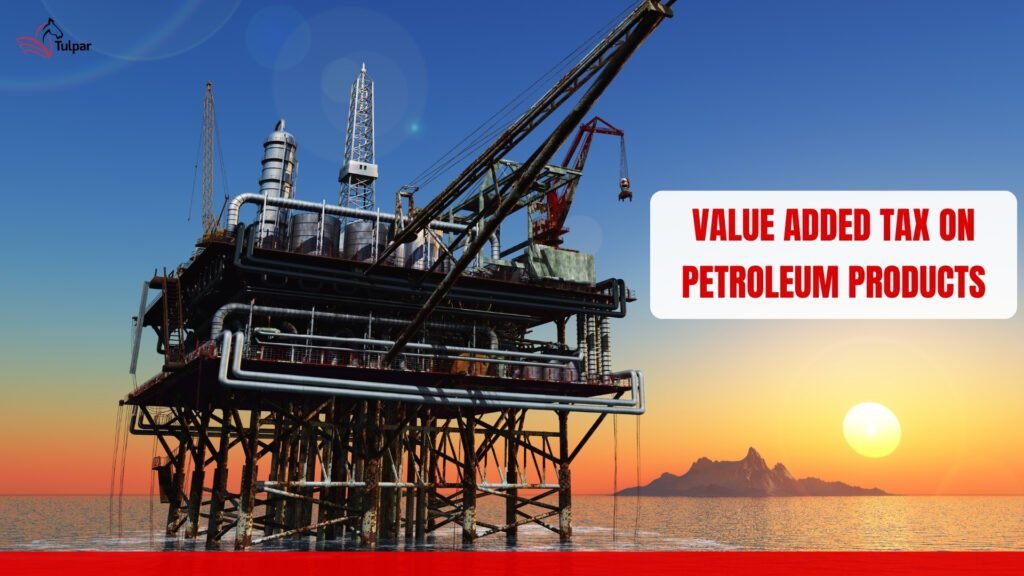
Value Added Tax (VAT) has been applicable to petroleum products in the United Arab Emirates (UAE) since its introduction in 2018. Under the VAT law, the supply of petroleum products is subject to VAT, with a rate of 5% being applied to most goods and services, including fuels and oils. This tax applies to transactions where businesses engage in the sale or supply of petroleum goods. The FTA (Federal Tax Authority) has outlined that businesses in the UAE, including those in the supply chain of petroleum products, must register for VAT if their taxable revenue exceeds the required threshold. Businesses should ensure they are compliant with the applicable regulations to avoid fines or penalties.
The VAT rate on petroleum products directly affects the price consumers pay for fuels, which in turn impacts business operations and income tax calculations for relevant entities. Businesses in the UAE need to consider the input tax they incur on petroleum products and how it affects their revenue. By maintaining proper VAT records, businesses can recover the VAT paid on their supplies and reduce their overall tax burden. This is critical in sectors like the petroleum industry, where substantial quantities of goods and services are exchanged within the emirates and across the UAE. A proper understanding of VAT implications is key for companies in managing their finances efficiently.
For businesses involved in the supply of petroleum products, consulting with professionals like Tulpar Global Taxation Services can help ensure compliance with VAT requirements. Their expertise in tax planning and VAT regulations ensures that companies in the UAE can efficiently manage their VAT obligations. Tulpar Global Taxation Services provides guidance on how to properly account for VAT rate changes and how to structure business transactions to minimize tax liabilities. They also assist businesses in maintaining accurate VAT records for VAT registration and charge processes, helping companies streamline operations and stay ahead of evolving tax regulations in the UAE.
What Is Value Added Tax (VAT) on Petroleum Products?
VAT is a consumption-based tax applied at each stage of the supply chain, significantly impacting the final price of petroleum products like gasoline, diesel, and jet fuel. In the UAE, VAT was introduced at a standard rate of 5% in 2017, affecting the oil and gas sector. Tulpar Global Taxation specializes in helping businesses understand and comply with these regulations.
How VAT Works in the Petroleum Industry
VAT is levied on the value added at each stage of petroleum production, from refining to retail. For example, a refinery adds value by processing crude oil into gasoline, charging VAT on that added value. This tax accumulates through distribution and retail, with the final consumer paying the full amount. According to the International Energy Agency (IEA), taxes like VAT can account for 30–50% of retail fuel prices globally. Key Points are:
- In the UAE, VAT on petroleum products is 5%, applied to the taxable supply value.
- Businesses can reclaim input VAT, but consumers bear the full cost.
- Tulpar Global Taxation assists with VAT registration and return filing to ensure compliance.
Why Petroleum Products Are Heavily Taxed
Petroleum products face high taxation due to their inelastic demand—consumers and businesses rely on fuel regardless of price increases. Governments use VAT to generate revenue and promote environmental policies. In the UAE, VAT on fuel supports public services while encouraging sustainable energy adoption. A 2023 OECD report noted that fuel taxes, including VAT, generated over $500 billion globally in 2022.
Tulpar Global Taxation helps businesses navigate these taxes, offering expert advice on VAT compliance and exemptions to reduce costs.
Unlocking the Basics of VAT on Petroleum Products in the UAE
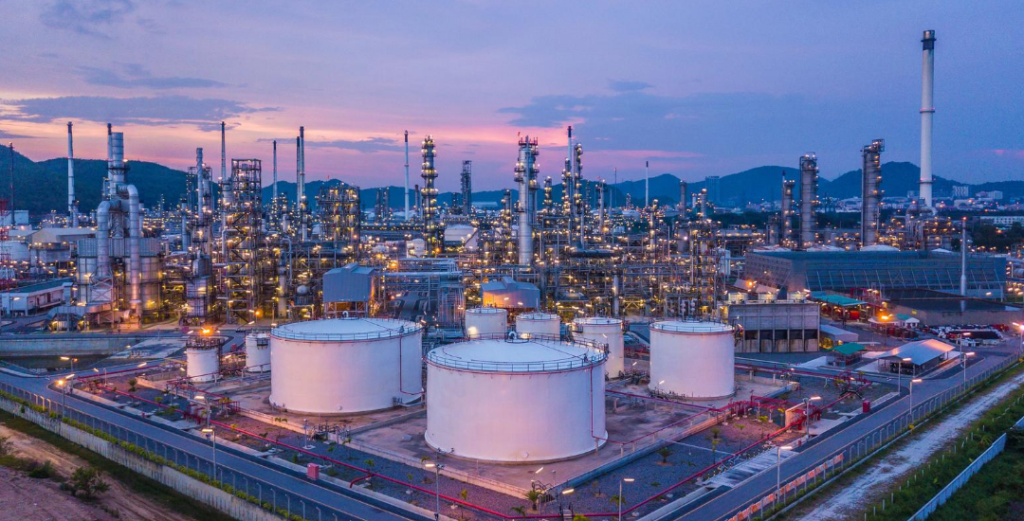
In the UAE, the implementation of value-added tax (VAT) on petroleum products has significantly impacted businesses across the energy sector. VAT was introduced as an indirect tax to streamline the country’s tax system and boost government revenue. The applicable VAT rate on petroleum products is typically standard rate, with certain exceptions, and businesses must ensure they comply with the requirement to register for VAT if their taxable supplies exceed the voluntary registration threshold.
Companies involved in the import, distribution, or sale of petroleum products need to manage both input VAT and output VAT efficiently to avoid penalties. Understanding the VAT process for petroleum products and the potential for exemptions, as well as staying updated on changes in VAT laws, is crucial for maintaining compliance and ensuring smooth operations in this highly regulated sector.
What You Need to Know About VAT on Fuels and Oils
The deploy of Value Added Tax (VAT) on petroleum products in the UAE has significantly impacted the energy sector and the wider economy. VAT is an indirect tax imposed on the sale of goods and services at every stage of the supply chain. For petroleum products, this tax is applicable to all transactions involving fuels, oils, and related energy products.
When VAT was introduced in the UAE in 2018, it created a framework for collecting taxes on goods and services, including petroleum products. Petroleum products like gasoline, diesel, and kerosene are now subject to VAT at the standard rate of 5%, with certain exemptions applicable to specific goods and services. Understanding the amount of VAT applied and the process for VAT registration is crucial for businesses involved in petroleum product distribution.
It’s important for com entities in the petroleum sector to be aware of VAT’s role in their transactions. These include not only the sales tax imposed on products but also the input tax that businesses can reclaim when they purchase goods and services for corporate use. To remain compliant, businesses must register for VAT and ensure their VAT records are in line with Ministry requirements.
VAT Implications for UAE’s Energy Sector
The petroleum sector in the UAE plays a pivotal role in the national economy. As one of the world’s leading oil producers, the country has had to adapt its petroleum sector to align with the broader indirect tax system under VAT regulations. The requirement to apply VAT on petroleum products affects the entire supply chain, from exploration and production to distribution and consumption.
Since VAT was introduced, petroleum companies must now consider the VAT deployment process when pricing and distributing their products. Goods such as fuel for vehicles are impacted, as the value-added tax is added to the final price paid by consumers. For petroleum producers and distributors, understanding how VAT applies to fuel and oil is essential to navigating the evolving landscape of the UAE’s energy sector.
How VAT Affects the UAE Petroleum Industry

The introduction of VAT on petroleum products has had a profound impact on the UAE’s petroleum industry, influencing everything from production to distribution and sales. As an indirect tax, VAT increases the cost of petroleum products for both businesses and consumers, requiring companies to carefully manage their VAT obligations to avoid financial repercussions. Petroleum companies must adhere to complex regulations around input VAT and output VAT to ensure accurate reporting and compliance. This includes understanding the exempt from VAT provisions for specific types of petroleum products or transactions. Additionally, the implementation of VAT has prompted companies in the energy sector to adopt more sophisticated accounting systems to track VAT on each stage of their operations, from extraction to final sale. As a result, businesses must navigate the challenges of VAT compliance while adapting their strategies to maintain profitability in a tax-affected market.
Key Impacts on Petroleum Producers and Distributors
The introduction of VAT has had significant ramifications for petroleum producers and distributors in the UAE. Producers are required to charge VAT on their commercial transactions, which includes the sale of petroleum products to distributors or directly to businesses. As an indirect tax, VAT is ultimately passed on to the end consumer, but businesses in the petroleum supply chain must remain compliant with the regulations set forth by the UAE government.
Petroleum companies must register for VAT and ensure that all transactions involving petroleum products are properly accounted for. This includes tracking input tax (the VAT paid on purchases) and output tax (the VAT collected on sales). Distributors must also be vigilant about exempt from VAT categories, ensuring they follow the procedure outlined by the UAE tax authorities. Furthermore, VAT on petroleum products influences how companies interact with global markets. With the UAE’s VAT system in place, exporters may benefit from VAT exemptions, contributing to union of international trade by enabling businesses to operate more efficiently.
Navigating VAT Compliance in the UAE’s Oil Market
To ensure that they are fully compliant, petroleum companies need a robust system in place to handle VAT reporting. This includes understanding when they are required to collect VAT, how to report VAT liabilities, and how to process VAT refunds for input tax paid. Failure to adhere to VAT regulations can result in penalties and delays in operations.
By seeking guidance from expert consultants like Tulpar Global Taxation Services, businesses can streamline their VAT compliance procedures. Tax experts ensure businesses understand the nuances of VAT on petroleum products and avoid common pitfalls. Their services include assisting businesses with VAT registration, VAT calculation, and providing strategies for VAT management that align with the specific needs of the energy and petroleum sectors.
Impact on UAE Consumers and Businesses
For UAE consumers, VAT increases the cost of transportation and goods reliant on fuel logistics. Businesses in logistics, manufacturing, and oil trading face higher operating costs, which may be passed on to consumers. A 2024 World Bank study found that a 10% increase in fuel taxes, including VAT, can raise logistics costs by 2–3%. Tulpar Global Taxation’s VAT advisory services help businesses mitigate these costs through strategic tax planning.
Why VAT on Petroleum Products is Crucial for UAE Economy

VAT on petroleum products plays a critical role in the UAE’s economy by contributing significantly to government revenue. As the UAE’s petroleum sector is a key driver of its corporate activity, the value-added tax levied on these products ensures a stable and diversified income stream for the government, reducing dependency on oil revenues alone. The amount of VAT collected from petroleum transactions supports infrastructure development, public services, and social welfare programs. Moreover, VAT on petroleum products encourages greater transparency in the sector, ensuring that businesses comply with tax regulations, which in turn fosters fair competition. By implementing indirect tax policies like VAT, the UAE enhances its economic resilience and aligns with global tax standards, positioning itself as a leading player in the international financial system.
The Economic Role of VAT in Petroleum Sector Growth
The UAE government uses VAT as a significant source of revenue to diversify the national economy and reduce reliance on oil exports. The petroleum sector, being a key component of the country’s economy, plays an important role in this broader economic transformation. VAT is vital in funding various government programs and infrastructure projects, which support to the growth and diversification of the UAE economy.
For the petroleum sector, the introduction of VAT serves as a tool for imposing a consumption-based tax system that helps ensure more equitable taxation. The collection of VAT also supports the UAE’s ambition to create a transparent and sustainable commercial environment, where all businesses, including those in the petroleum industry, contribute to the national coffers.
How VAT is Changing the Petroleum Landscape
VAT’s impact on the petroleum landscape in the UAE cannot be overstated. It has influenced not only the sales tax on petroleum products but also how energy companies approach their pricing strategies. Businesses that previously operated without an official tax structure now need to register for VAT, track their transactions, and manage their tax obligations effectively.
Tulpar Global Taxation Services plays a crucial role in helping businesses in the petroleum sector adjust to the changing landscape. Their expertise in VAT compliance helps ensure businesses are not only compliant but also optimized for efficiency in managing their VAT implementation. Whether it’s assisting with corporate taxation issues or providing guidance on VAT registration for smaller businesses, Tulpar Global Taxation Services ensures companies fully understand the scope of value-added tax on petroleum products.
In conclusion, VAT is an essential element of the UAE’s tax system, and its implementation in the petroleum sector is vital for the continued development of the country’s economy. Companies involved in the production, distribution, and sale of petroleum products must stay informed of changes in VAT law and ensure compliance with all applicable regulations. With the right support and guidance, businesses can navigate the complexities of VAT and contribute to the growth and diversification of the UAE’s economy.
VAT Exemptions and Refunds for Petroleum Products in the UAE
Certain exemptions and refund mechanisms can reduce the VAT burden on petroleum products, particularly for UAE businesses. Tulpar Global Taxation specializes in identifying these opportunities.
Common VAT Exemptions in the UAE
The UAE offers limited VAT exemptions for petroleum products, such as:
- Exports: Fuel exported outside the UAE is zero-rated for VAT.
- Specific Uses: Certain industrial or agricultural uses may qualify for exemptions.
- Free Zones: Businesses in UAE free zones may benefit from VAT relief.
Tulpar Global Taxation guides businesses through these exemptions, ensuring compliance and cost savings.
How Businesses Can Claim VAT Refunds
UAE businesses registered with the FTA can reclaim input VAT on petroleum products used for taxable supplies. Tulpar Global Taxation streamlines this process by:
- Assisting with VAT return filing.
- Ensuring accurate documentation for FTA audits.
- Providing expert consultation to maximize refunds.
Partner with Tulpar Global Taxation to automate VAT refund processes using tools like Xero, reducing errors and ensuring FTA compliance.
VAT on Petroleum Products: Key Changes You Should Be Aware Of

Recent changes to VAT regulations in the UAE have brought key updates to the treatment of petroleum products, requiring businesses in the energy sector to stay informed and compliant. These adjustments include alterations in VAT rates, as well as the introduction of specific exemptions and taxable conditions that directly impact how petroleum companies calculate and report VAT. Companies must now pay closer attention to how input VAT and output VAT are applied across different stages of the supply chain, from importation to final sale.
Additionally, the GCC Customs Union regulations may influence VAT treatment on cross-border transactions of petroleum goods, introducing new complexities for companies involved in regional trade. Businesses must also be aware of evolving VAT compliance requirements, including more stringent reporting and registration processes, which ensure that all transactions adhere to the latest VAT implementation guidelines. Keeping up with these changes is vital to avoid penalties and to maintain efficient tax practices in the dynamic UAE market.
New VAT Regulations in the UAE’s Petroleum Industry
The UAE has introduced significant changes in VAT regulations, especially for the petroleum products sector. VAT in the UAE is now implemented in accordance with the Federal Tax Authority’s (FTA) rules, which directly impact petroleum businesses. The standard rate of VAT, which is 5%, applies to most goods and services, including petroleum products like gasoline and diesel. However, certain products may benefit from rate or an exemption based on specific criteria established by the Ministry of Finance.
One of the primary changes is that businesses involved in the import and distribution of petroleum products must ensure proper VAT registration. This includes calculating output VAT on sales and claiming input VAT on purchases. For companies, the VAT they pay on purchases (input VAT) can often be reclaimed against the VAT they collect from sales (output VAT), which provides some financial relief. This system helps businesses manage their cash flow more effectively while ensuring compliance.
Understanding the Latest Amendments and Their Effects
The latest amendments in the UAE’s VAT laws emphasize the need for taxable entities to be more diligent in reporting and paying VAT. Public services related to petroleum distribution are also impacted, requiring energy companies to adhere to strict VAT procedures to avoid penalties. Voluntary registration threshold is one of the key factors in this amendment, whereby businesses with a turnover below a certain threshold can choose to register for VAT voluntarily.
For petroleum companies, understanding the first supply of residential properties and its VAT implications is crucial. This is particularly important for companies involved in the real estate sector, as certain residential properties may be exempt from VAT under specific conditions. These changes are designed to streamline tax administration and ensure that businesses within the petroleum sector stay compliant with the evolving VAT landscape.
How Tulpar Global Taxation Helps with VAT Compliance
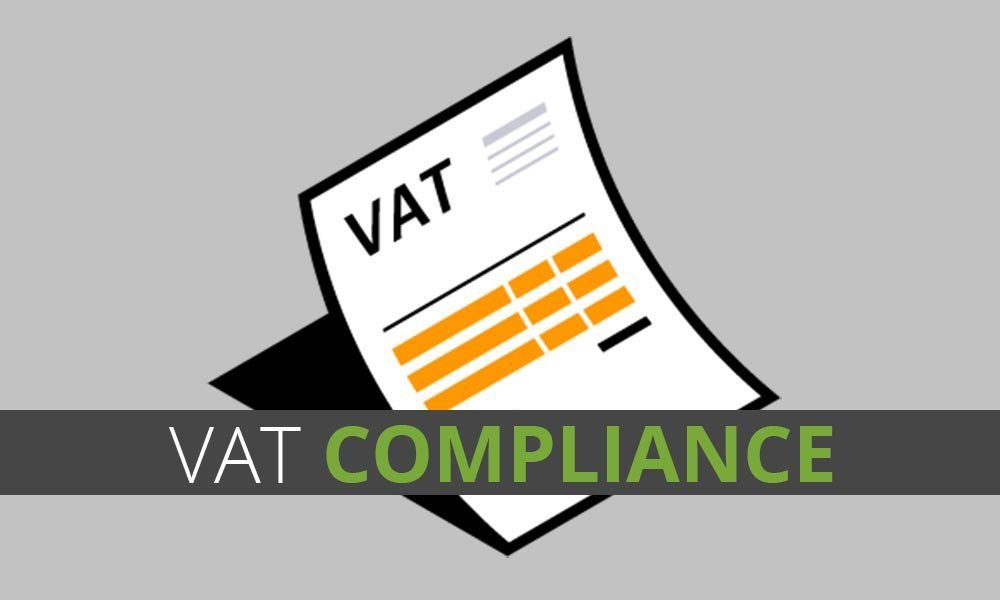
Tulpar Global Taxation offers expert consultancy and comprehensive services to ensure seamless VAT compliance for businesses across the UAE, particularly in the petroleum sector. Our team provides guidance on navigating the complexities of VAT on petroleum products, helping businesses understand their input VAT and output VAT obligations, and ensuring proper documentation and reporting. We assist companies in registering for VAT and managing their tax filings efficiently, while also advising on how to handle cross-border transactions in line with GCC Customs Union regulations. Through customized VAT solutions, we help businesses mitigate the risks of non-compliance, optimize VAT returns, and reduce the potential for costly fines. Whether it’s managing VAT on commercial operations or providing advice on VAT exemptions, Tulpar Global Taxation ensures that businesses can focus on growth while staying fully compliant with UAE tax laws.
Expert VAT Consultancy for the Petroleum Sector in UAE
Navigating VAT compliance in the petroleum sector can be complex, but Tulpar Global Taxation Services offers expert consultancy to help businesses in the UAE manage their VAT obligations effectively. Our team of professionals provides guidance on VAT in accordance with the latest regulations, ensuring that your business stays compliant with the laws and avoids penalties.
We offer VAT consultancy to companies involved in the production, import, and distribution of petroleum products, helping you understand the nuances of input VAT and output VAT. Whether your business is new to VAT or seeking advice on tax-efficient strategies, we provide solutions tailored to your needs. Our experts can assist in implementing VAT systems that are suitable for your specific operations and guide you through the process required by the UAE authorities.
How We Can Optimize Your VAT Returns
At Tulpar Global Taxation, we specialize in helping businesses optimize their VAT returns. Our taxable consultants analyze your petroleum transactions, ensuring you claim the maximum possible refunds on input VAT and avoid overpaying output VAT. This process can significantly improve your financial position, reduce administrative burdens, and ensure accurate VAT filings.
Our team also helps petroleum businesses with VAT reconciliation, making sure that all VAT paid to the government is properly accounted for. This can prevent issues during audits and ensure you meet the VAT registration needs on time. With our professional guidance, your company can easily navigate the complexities of VAT and maintain smooth operations.
Are You Paying Too Much VAT on Petroleum Products?
Many businesses in the UAE’s petroleum sector may unknowingly be paying more VAT than necessary due to incorrect calculations or a lack of understanding of the complex tax regulations surrounding petroleum products. The key to minimizing VAT costs lies in accurately managing input VAT and output VAT while ensuring that all eligible exemptions from VAT are applied. Additionally, businesses involved in import and export transactions must be aware of the specific GCC Customs Union rules that may affect VAT rates. Tulpar Global Taxation offers expert advice on how to streamline VAT processes, optimize returns, and ensure your business is not overpaying. With our in-depth knowledge of the petroleum industry’s VAT landscape, we can help you identify potential savings and reduce unnecessary tax burdens, allowing you to reinvest in your business and improve profitability.
Learn How to Minimize VAT Costs in the Petroleum Industry
With VAT being applied to petroleum products, businesses in this sector must understand how to manage their VAT exposure. Many companies inadvertently overpay VAT by failing to correctly claim input VAT on eligible expenses or by not properly applying exemptions where available. By reviewing your output VAT and comparing it with input VAT, you can identify areas where you may be overpaying and adjust your processes to minimize costs.
For businesses in the UAE’s petroleum sector, it’s important to be aware of any VAT exemptions or special rates that apply to certain types of fuel or energy services. This can include the exemption for certain products or services provided to residential properties or certain types of public transportation. Tulpar Global Taxation’s experts can guide you through these complexities and identify strategies to minimize VAT costs, ensuring that you only pay what is required.
Expert Advice from Tulpar Global Taxation on VAT Reduction
Tulpar Global Taxation Services offers expert advice to help petroleum companies reduce their VAT liabilities. Our experienced consultants specialize in understanding the nuances of VAT laws, such as the VAT treatment for taxable goods and services in the petroleum industry. By helping you structure your transactions efficiently, we ensure you take full advantage of all available rate or exemption opportunities.
Additionally, we offer strategies for managing VAT on imported petroleum products, helping businesses navigate the complexities of cross-border VAT transactions. Our goal is to reduce your overall tax burden while ensuring compliance with the latest VAT requirements.
The VAT Registration Process for Petroleum Companies in the UAE
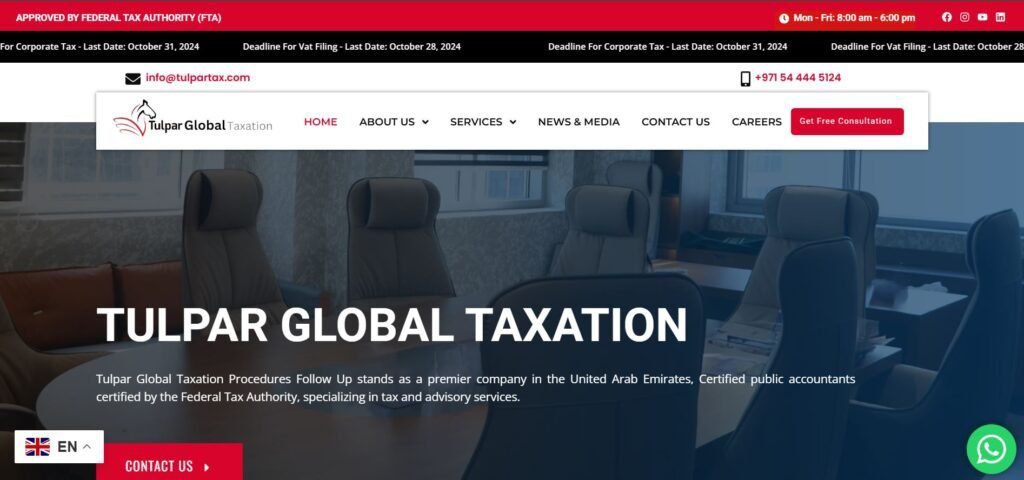
The VAT registration process for petroleum companies in the UAE is a crucial step to ensure compliance with the country’s tax regulations. Businesses involved in the supply of petroleum products must register for VAT if their taxable turnover exceeds the voluntary registration threshold, or if they are involved in importing or distributing petroleum products subject to VAT. The process begins with gathering essential documentation, such as business licenses and financial records, to verify that the company meets the needs for registration.
Once the necessary documents are submitted, the Ministry of Finance reviews the application and issues a VAT registration number. Tulpar Global Taxation assists companies through every stage of the registration process, ensuring that all forms are filled out correctly and submitted in a timely manner. Additionally, we provide guidance on VAT implementation and help businesses set up systems for managing input VAT and output VAT. Our experts also offer ongoing support to ensure that petroleum companies maintain compliance and avoid any penalties or fines.
Step-by-Step Guide to VAT Registration
For petroleum companies operating in the UAE, registering for VAT is a critical step in ensuring compliance. The voluntary registration threshold applies to businesses whose taxable turnover exceeds a certain amount. If your business meets this threshold, you must register with the UAE’s Federal Tax Authority (FTA) and begin charging VAT on your transactions.
The VAT registration process involves several steps, including providing details of your company’s activities, turnover, and financial information. You will also need to submit documentation proving your business’s eligibility for VAT registration. Once registered, your company will be required to submit regular VAT returns and pay any outstanding VAT liabilities to the government.
How Tulpar Global Taxation Streamlines the Process
At Tulpar Global Taxation, we streamline the VAT registration process for petroleum businesses. Our team assists with the VAT in accordance with local laws, helping you meet all requirements efficiently. We ensure that your application is accurately completed, minimizing the chances of delays or rejections. We also guide you through the finance aspects of VAT registration, including setting up accounting systems to track input VAT and output VAT.
We also provide continuous support to ensure that your VAT returns are filed on time, and help you stay informed about any updates or changes in VAT regulations. Our comprehensive services are designed to ensure your petroleum business operates smoothly within the VAT framework.
VAT on Petroleum Products: Challenges and Solutions in UAE
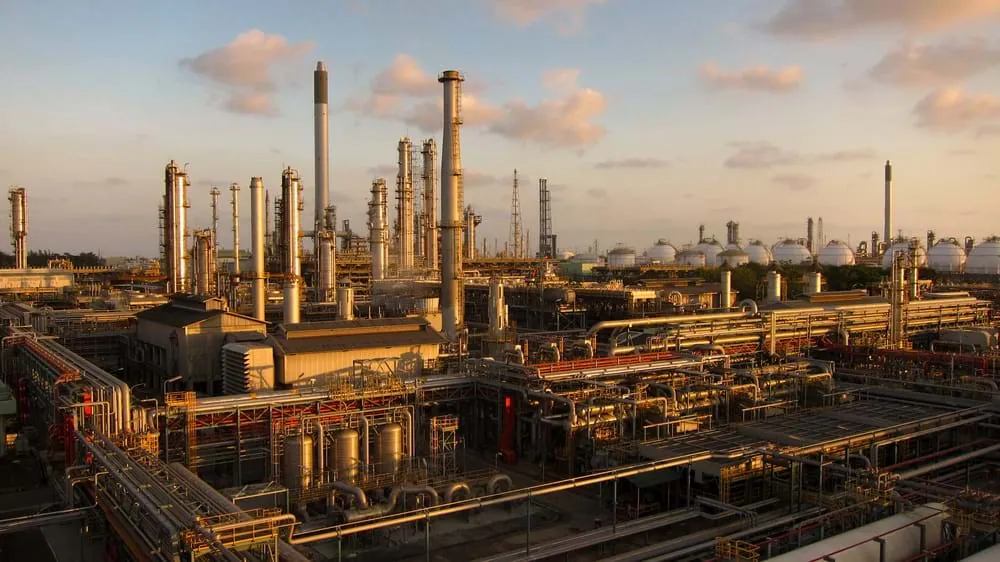
The introduction of VAT on petroleum products in the UAE has posed several challenges for businesses in the energy sector. One of the primary hurdles is ensuring compliance with the complex VAT regulations, especially when dealing with cross-border transactions or fluctuating tax rates. Companies often face difficulties in accurately calculating input VAT and output VAT, particularly when multiple exemptions or tax rates apply. Additionally, the GCC Customs Union introduces further complexity in handling VAT for imported petroleum products, requiring businesses to carefully manage their import VAT and ensure they meet all regulatory needs. Another significant challenge is maintaining proper documentation and timely filing to avoid penalties or fines.
To overcome these challenges, Tulpar Global Taxation offers tailored solutions that simplify VAT management. Our team helps businesses understand and apply the correct VAT treatment for petroleum products, ensuring that all transactions comply with local tax laws. We also assist in registering for VAT and setting up robust accounting systems to track VAT obligations. By providing expert advice on exemptions, tax rates, and compliance procedures, we help businesses mitigate risks and optimize their VAT returns, ultimately reducing the financial burden and ensuring smoother operations in the dynamic petroleum market.
Overcoming Compliance Challenges for Petroleum Businesses
The introduction of VAT on petroleum products in the UAE has presented unique compliance challenges for businesses in the energy sector. As VAT is a mandatory requirement, petroleum companies must navigate complex tax proces to stay compliant with the UAE’s Federal Tax Authority (FTA). Ensuring that domestic transactions involving petroleum products, from fuel supply to retail sales, are correctly documented is crucial to avoid penalties.
One of the main challenges faced by petroleum businesses is the GCC Customs Union regulations, which complicate the VAT process for companies importing petroleum products from neighboring GCC countries. In order to ensure proper VAT handling, businesses need to understand the nuances of GCC customs union rules, including the tax treatment of goods transported across borders. This includes applying the correct VAT rates and ensuring that any input VAT paid on imports is accurately reclaimed. Failure to comply with VAT regulations can lead to significant fines. A fine can be imposed if businesses do not report their VAT correctly, fail to file returns on time, or incorrectly calculate the VAT on commercial properties related to their business. This risk underscores the importance of having an efficient VAT compliance system in place, and this is where Tulpar Global Taxation Services can help.
How to Stay Ahead of VAT Compliance with Expert Guidance
Staying ahead of VAT compliance requires constant monitoring and expert guidance. With the evolving nature of tax regulations, particularly regarding the treatment of petroleum products, businesses need to rely on experienced professionals to maintain compliance. Tulpar Global Taxation Services offers expert consultancy to ensure petroleum companies remain compliant with both domestic regulations and international financial practices.
Our services include regular VAT audits, training for internal teams, and strategic advice on VAT reporting to minimize the risk of errors or omissions. We help businesses implement systems to track VAT on all petroleum transactions, including corporate properties used for storage or distribution. Moreover, we guide clients through complex VAT filing processes, helping them understand how VAT impacts different sectors, from retail to large-scale distribution. By partnering with Tulpar Global Taxation, businesses can stay on top of VAT regulations, avoid fine impositions, and reduce the risk of non-compliance, all while optimizing their tax strategy to support continued growth and profitability.
Future of VAT on Petroleum Products in the UAE
The future of VAT on petroleum products in the UAE is likely to evolve as the government continues to refine its tax policies to align with global standards and ensure fiscal sustainability. As the GCC Customs Union progresses and the UAE’s role in international trade grows, we may see further adjustments to VAT rates or exemptions on petroleum products to encourage economic growth and ensure that the tax system remains competitive. The UAE government is also likely to implement stricter compliance measures to reduce tax evasion and ensure efficient collection of VAT.
Businesses in the petroleum sector must stay informed about potential regulatory changes to navigate future VAT challenges. Tulpar Global Taxation helps companies anticipate these changes by providing up-to-date insights and advising on strategic VAT planning, ensuring that businesses remain prepared for any shifts in the VAT landscape and continue to operate efficiently within the evolving tax framework.
How VAT Policies Might Evolve in the Coming Years
As the UAE continues to refine its VAT framework, the policies surrounding VAT on petroleum products may also evolve. One possibility is that the UAE could adjust VAT rates or implement decree-based reforms that affect how VAT is applied to energy resources, including petroleum. While no official changes have been announced, there is a growing conversation about the potential for VAT rates to fluctuate in response to international trends, as well as changing domestic needs and economic goals.
The evolving GCC Customs Union also plays a role in shaping future VAT policies. As member states align their tax laws, changes in VAT treatment for petroleum products could be seen across the region, influencing how companies manage VAT reporting and payments. Additionally, the UAE may introduce mandatory VAT audits or reporting systems in the future to enhance transparency and ensure consistency across sectors, including energy. Keeping up with these potential changes is essential for businesses involved in the petroleum sector, and Tulpar Global Taxation Services offers the insight needed to stay prepared for upcoming adjustments. We monitor changes in tax law and keep our clients informed about potential modifications to VAT policies, ensuring that businesses are ready to comply with any new regulations as they arise.
As the UAE advances toward sustainability, VAT policies on petroleum products are evolving. Tulpar Global Taxation keeps businesses ahead of these changes. Emerging Trends in UAE VAT Policy;
- Green Incentives: Reduced VAT rates for biofuels to support sustainability.
- Digital Compliance: FTA’s FAF requirements enhance transparency.
- Global Tax Reforms: Alignment with OECD’s Pillar Two may impact petroleum taxation.
Stay Prepared with Tulpar Global Taxation’s Insights
At Tulpar Global Taxation, we understand that the future of VAT on petroleum products in the UAE may hold several unknowns. To help businesses prepare, we provide in-depth analysis and strategic insights into potential changes in VAT policies, including how the GCC Customs Union might affect cross-border VAT transactions for petroleum companies.
Tulpar’s proactive approach includes:
- Regular updates on FTA regulations.
- Workshops on corporate tax and double taxation, as hosted in May 2026 with Spanish, Australian, and Turkish Business Councils.
- FTA Audit File (FAF) preparation to ensure compliance.
Our experts continually monitor global trends in VAT, including in over 150 countries, to understand the international financial landscape and how it could influence VAT regulation changes in the UAE. We work closely with our clients to anticipate these changes, ensuring that their operations remain compliant and efficient. With our guidance, businesses can navigate the complexities of VAT and stay ahead of regulatory shifts in the energy sector, ensuring their long-term success in a dynamic tax environment.
Conclusion:
VAT on petroleum products shapes fuel prices, business costs, and UAE’s economic and environmental landscape. With Tulpar Global Taxation’s FTA-accredited expertise, businesses can navigate VAT compliance, claim refunds, and leverage exemptions to stay competitive. Whether you’re managing fuel costs or ensuring FTA compliance, Tulpar’s tailored solutions are your key to success.
Contact Tulpar Global Taxation at info@tulpartax.com or 0544445124 to schedule a consultation. Share this guide to spark discussions on UAE tax strategies, and explore Tulpar’s resources at tulpartax.com for more insights.
Yes, petroleum products in the UAE are generally subject to 5% Value Added Tax (VAT). VAT applies to the supply of fuel and petroleum products unless a specific zero-rating or exemption applies. The VAT treatment depends on the type of product and the nature of the supply.
Petroleum products such as petrol, diesel, lubricants, jet fuel, and other fuel oils are subject to VAT. VAT is charged at the point of supply to customers. Businesses involved in trading, refining, or distributing these products must comply with VAT regulations.
VAT is a general consumption tax charged at 5% on taxable supplies. Excise Tax, on the other hand, applies only to specific harmful products and does not generally cover standard petroleum fuels. Petroleum products are typically subject to VAT, not Excise Tax.
Yes, fuel sold locally within the UAE is subject to 5% VAT. VAT must be charged on invoices issued to customers and reported in VAT returns. Proper invoicing and reporting are essential to remain compliant.
Exports of petroleum products outside the UAE generally qualify for 0% VAT (zero-rated), provided all export conditions are met. Goods must physically leave the UAE, and valid export documentation must be retained. Missing documents may result in VAT being charged at 5%.
Imported petroleum products are subject to VAT under the reverse charge mechanism for VAT-registered businesses. This means VAT is accounted for in the VAT return instead of being paid at customs. Proper customs and accounting records are required.
Yes, businesses can recover input VAT incurred on eligible expenses related to taxable or zero-rated supplies. This includes VAT on logistics, storage, and operational costs. Input VAT recovery is subject to standard VAT recovery rules.
Free Zones are not automatically outside the scope of VAT. VAT treatment depends on whether goods move within or outside the UAE. Petroleum supplies from Free Zones may still be taxable unless zero-rating conditions are met.
Common issues include incorrect VAT classification, errors in reverse charge application, and poor documentation. Misalignment between VAT returns and customs records is also a frequent audit trigger. Regular compliance reviews help mitigate these risks.
Petroleum businesses should maintain accurate records, reconcile VAT with customs data, and review VAT treatment regularly. Working with experienced advisors like Tulpar Global Taxation helps ensure correct VAT application and audit readiness.
